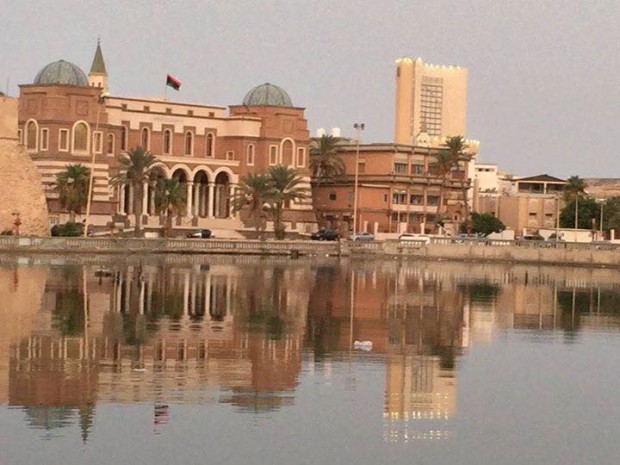Tripoli institutions provide reasons for hope

Building a unity government that represents the entire Libyan nation is no easy task. But with each passing day, our economy deteriorates and it is ordinary people who suffer the most. While the politicians fiddle, Libya burns.
Among the ashes, however, lie a few green shoots of recovery. And it is particularly encouraging to see the independent Tripoli-based institutions take the lead in getting the country back on its feet.
Take for instance the Libyan Central Bank (CBL) and its recent crackdown on corruption, a scourge which blights many parts of our society. The CBL issued a letter to all commercial banks earlier this month which placed tight restrictions on the issuing of letters of credit, in a bid to tackle fraudulent black market activity. This new measure also ensures that Libya’s foreign reserves, already hit by declining exports and rock-bottom oil prices, are preserved to ensure the stability of the official currency.
Key questions remain. The Libyan people need clearer and more forward-looking information on the state of the public finances. What is the expected income and expenditure for the year ahead, for example? Clearly more needs to be done to boost transparency. But in taking steps to tackle corruption, the CBL has made an important move in the right direction.
In a similar vein, the Chairman of the Libyan Investment Authority (LIA), AbdulMagid Breish, has called on the international community to maintain the international sanctions that are currently in place against roughly 85% of the fund’s assets. This is a wise move in the current political climate. The threat of funds being misappropriated by opportunistic factions has not yet subsided, so unfreezing the assets would be premature and dangerous. The LIA controls assets which were last valued at $67 billion, and these funds must not be unfrozen until they can be delivered to a united and stable unity government.
The Tripoli-based National Oil Corporation (NOC) has also taken impressive steps in recent weeks. Despite the current glut of supply in world markets, the importance of rebooting Libya’s oil industry cannot be overstated. So it is very welcome news that the NOC has recently concluded important deals with commodity giants such as Glencore and Vitol, and is currently negotiating further deals in Istanbul with big global players such as BP.
Maintaining this progress will be difficult, particularly in light of recent clashes between Isis fighters and government forces guarding key oil terminals at Es-Sider and Ras Lanuf. This violence on the ground has been compounded by the desperate attempts of breakaway Tobruk factions to seize control of oil exports and undermine the deals cut by the Tripoli-based NOC. But once a new unity government is finally in place, it should be in a position to exert more central control over Libya’s energy infrastructure, and help the NOC achieve its goal of boosting Libya’s production from 380,000 barrels a day to 1.5 million.
Though this progress is cause for guarded optimism, it certainly doesn’t mean that Libya is out of the woods. As we hold out for the reunification of our country, nearly five years after the revolution that ended decades of dictatorship, enormous challenges still remain. But when it comes to fighting corruption, safeguarding the country’s wealth and bolstering the oil sector, it is heartening to see that our Tripoli-based institutions are leading the way.
How to submit an Op-Ed: Libyan Express accepts opinion articles on a wide range of topics. Submissions may be sent to oped@libyanexpress.com. Please include ‘Op-Ed’ in the subject line.
- Can Haftar give Russia what Assad couldn’t? - January 12, 2025
- Aguila Stakes Future on Bold Peace Initiative - January 12, 2025
- SSA seizes major drug haul, arrests Libyan suspect - January 12, 2025


